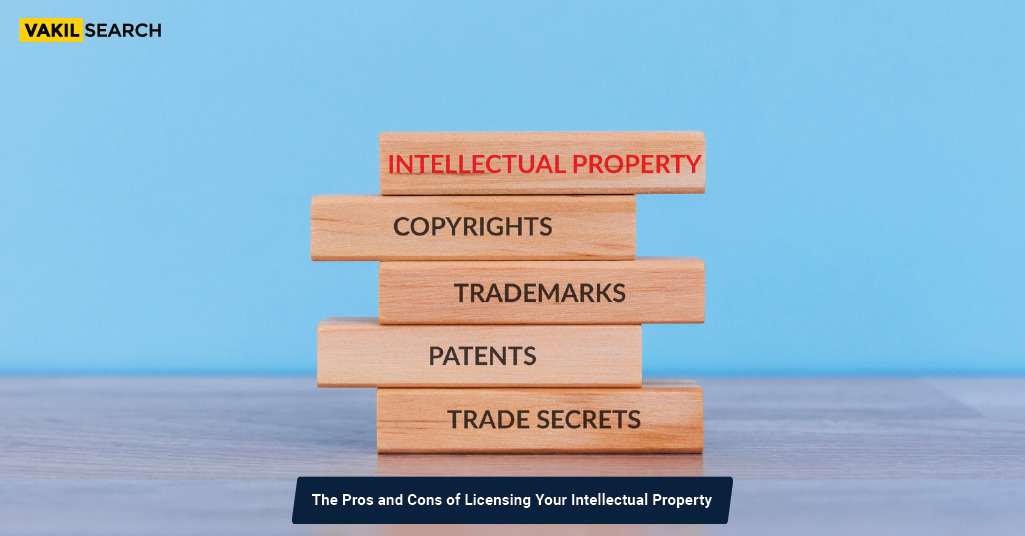Licensing your intellectual property (IP) can be a valuable way to generate revenue for your business. However, it also comes with potential downsides that must be carefully considered.
The Advantages of Licensing Intellectual Property for Businesses
Generate Revenue: Licensing your IP can provide a steady stream of income for your business without having to invest in production, marketing, and distribution.
Expand Your Market Reach: Licensing your IP can allow you to reach new markets and customers that you may not have been able to reach on your own.
Reduce Risk: Licensing your IP can reduce the risk of investing in unproven products or technologies, as the licensee will take on much of the risk.
Potential Disadvantages of Licensing Your Intellectual Property
Loss of Control: Licensing your IP can mean giving up control over how your IP is used, potentially leading to a loss of brand reputation or dilution of your brand.
Competing Products: Licensing your IP to one company may prevent you from licensing it to a competitor or using it yourself in a similar product or service.
Legal Issues: Licensing agreements can be complex, and disputes over licensing terms or infringement can lead to costly legal battles.
Understanding the Different Types of Intellectual Property Licenses
Exclusive License: Gives the licensee exclusive rights to use the IP within a specific market or geographic area.
Non-Exclusive License: Allows multiple licensees to use the IP without exclusivity.
Sole License: Gives the licensee exclusive rights to use the IP, but the licensor retains the right to use it as well.
Factors to Consider When Negotiating an IP Licensing Agreement
Licensing Fees and Royalties: Determine the fees and royalties that will be paid for the use of the IP.
Scope of Use: Define the specific ways in which the IP can be used, and limit any potential risks.
Termination Clause: Include a termination clause that outlines the circumstances under which the agreement can be terminated.
Maximizing the Value of Your Intellectual Property through Licensing
Choose the Right Licensee: Ensure that the licensee has the necessary expertise and resources to effectively use and promote your IP.
Protect Your IP: Implement safeguards to protect your IP, such as requiring regular reporting and auditing of the licensee’s use of the IP.
Continually Evaluate the Agreement: Regularly review the licensing agreement to ensure that it is still meeting your needs and maximizing the value of your IP.
Alternatives to Licensing Your Intellectual Property: Pros and Cons
- Selling Your IP: Can provide a lump-sum payment, but you will lose control over the use of your IP.
- Creating a Joint Venture: This can allow you to maintain some control over the use of your IP but requires more time and resources.
- Keeping Your IP In-House: Allows you to maintain complete control over the use of your IP, but may limit your ability to generate revenue from it.
FAQs
Can I license my IP to multiple companies at once?
Yes, you can license your IP to multiple companies at once with a non-exclusive license agreement. This can allow you to generate revenue from multiple sources while still retaining control over the use of your IP.
What happens if my licensee breaches the licensing agreement?
If your licensee breaches the licensing agreement, you may be able to terminate the agreement or seek legal action for damages. Make sure to include a termination clause and other safeguards in the licensing agreement to protect your IP.
Conclusion:
Licensing your intellectual property means allowing others to use your ideas or creations in exchange for money. This can be a good way to make money for your business and get your ideas out to more people. But, it’s important to think carefully about whether it’s the right choice for you and your business. For any queries, you can contact the experts at Vakilsearch.
Read More:
- Employment Agreement – FAQs
- Things to know about Rental Agreement
- Terms and Condition of Lease Agreement in India


